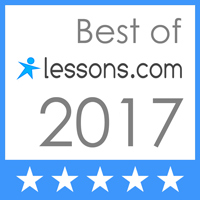Dr. Raisa Isaacs offers Piano lessons in her private studio easily acceessable in Atlanta areas of Chamblee, Brookhaven, Dunwoody, and Online Skype lessons.
Adults — all levels from the most beginners to advanced, and professionals.
Junior students – Intermediate to Advanced levels, interested in music and oriented to succeed in piano.
Offer Piano Lessons for Adults from any profession and qualifications of life, from the absolute beginner to the advanced non-professional and professional pianists.
Lessons will cover the basic principles of Piano Performance, Sight-Reading, Technical Skills, Music Theory, Music History, and Ear Awareness for all levels and ages in the Perimeter and North Atlanta areas and at any place by Online Lessons with free Skype.
My Piano Performance method includes a historical approach/style in interpretations; improving and developing freedom and relaxed body motions piano technique, based on personal physical abilities; quality and variety of sound, based on the European-Russian Weighted Hand technique; introduction and implementation of the latest researches in the World of Piano Pedagogy
Dr. Isaacs’s piano lessons are oriented to all needs, desires, and abilities in accordance with each individual requirements.
My students have an opportunity to participate in the following piano programs for Juniors and Adults:
1. Carnegie Hall Royal Conservatory Music Development Program.
Carnegie Hall, aiming to improve the quality of music education on the pre-college level in the US, was thoughtfully searching for the best program to establish it as a unified standard in the US.
Carnegie Hall in conjunction with the Royal Conservatory in Toronto announced The Music Development Program as a National Standard in the US. Royal Conservatory program has been adjusted for US educational conditions and has been widely implemented throughout the country since then
“We’re all very proud of the growing participation in this program as students and teachers have embraced
the value of having a national standard of musical achievement in the US,” said Clive Gillinson,
executive and artistic director of Carnegie Hall. “Since our launch, we have all achieved so much
together. We’re grateful to everyone who has worked so hard to advance this program across the
country.”
I offer the program at my studio as currently the most adequate to the European pre-college programs in the US. The program’s orientation on the upbringing of a well-rounded musician, no matter on which instrument a student performs, profoundly matches my own pedagogical approach.
In accordance with the program definition, “The Music Development Program is a sequenced course of musical study appropriate for all levels and ages. Many adults participate in The Program, as they consider the assessments to be a clear and rewarding way to motivate and guide their study. They also appreciate receiving constructive and valuable professional feedback on their growth and development.”
Carnegie Hall Royal School The Music Development Program starts from Level A to 10 and awards students with internationally recognized Certificates after each level test and Diplomas (Associate Performer’s Diploma in Piano Performance and Associate Diploma in Piano Pedagogy) for those who are interested to proceed to the Diplomas level assessments.
The flexibility of the program is very appealing to any age and level. Students can enroll at the grade they feel confident in and can skip levels depending on their preparedness.
The Music Development Program has two assessment sessions per year: in the late fall and spring). The Program consists of several sections: Performance, Technique (scales and technical exercises- etudes), Sight-Reading, Ear Awareness, and Musical Terminology. A separate Theory assessment (test) will require Theory Rudiments for Levels 1-5 and more complicated subjects for levels 5-10 and a Diploma (Harmony, Counterpoint, Analysis, and Music History)
The best benefit of this program is upgrading of the standard in all US states and making it comparable to the standards abroad. “A national standard ensures the equality of all students, no matter where they are located.”
2. GMTA Local, State Auditions
3. NMTA Competitions
4. Georgia Music Teachers Association students events and recitals.
5. ABRSM (London)
6. GFMC (Georgia Federation Music Clubs) Festival
7. Dr. Raisa Isaacs’s Studio Winter and Spring Recitals (Studio Trophy Awards)
9. National and International Competitions (TBA)
10. Masterclasses with the leading European and USA college and university level piano professors
Collaborative Piano
The following problems of Collaborative Performance Practice will be discussed during the sessions: interpretation, equality, independence and interplay of the parts, unification string/piano – wind/piano, string, wind/piano sound, articulation, and dynamics.
Harpsichord lessons for beginners and intermediate levels.
Prerequisite of the beginner-intermediate level in piano required.
I studied my second instrument, the harpsichord, at the Moscow Collegium of Early Music, at the School of Music of the University of Michigan, and at Boston University School of Music (Harpsichord, Ph.D). I offer harpsichord lessons for beginners to advanced level. Intermediate level on the piano required. I teach on a Flemish Harpsichord, beginners to intermediate levels. The main fundamentals of baroque performance: phrasing, articulation, ornamentation, and tempo would be discussed altogether with learning hand/body position and harpsichord touch. Features of Baroque Performance in England, Italy, France, Spain, and Germany of the early 17th to middle 18th centuries would be embraced.
(For price and other enrollment questions refer to FAQ)









